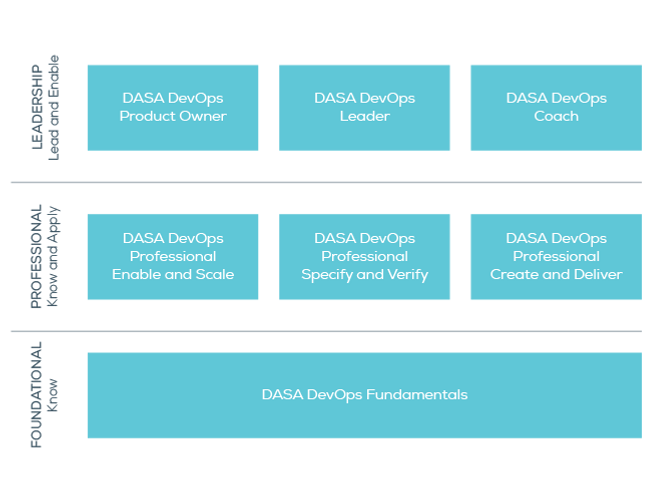
WHAT IS DEVOPS?
DevOps aims for a simple, yet important goal to make IT easier, faster and cheaper, to provide more value faster to the business / consumer / user.

DevOps, a philosophy, culture, and movement that arose from an urgent need for better alignment, collaboration, and empathy between IT Development and IT Operations teams or departments, is now increasingly used to denote precisely the aforementioned key ingredients that constitute the New IT wave.
Enterprise-wide DevOps stands for rethinking traditional IT practices and capabilities, including a product, process, and people perspective. DevOps is the ultimate search for flow in the delivery of IT services.
SOFTWARE DEVELOPMENT METHODOLOGY

WATERFALL
Traditional (1970) structured, rigid software development methodology
Think -Silo’s, software developed as one single project -change is difficult

AGILE
Agile (2001) methodology know for flexibility and fast development of software
Think – Developers develop software super fast but the agility stopped at the door of production

DEVOPS
Devops (2009) collaboration between development and production professionals through all stages of a product or service lifecycle
Think – High-performing teams that meet to metrics for successful digital business models
WHY DEVOPS MATTERS?
Digital Business Models are driving IT transformational Change. Old Waterfall approaches are being abandoned as Enterprises ask the question – What does DevOps mean for my IT organization, are my people ready for DevOps, and do my teams have the right skills to work in an Agile / DevOps environment.
Adopting DevOps concepts and principles requires a deep cultural and organizational change for organizations. Moving from siloed, waterfall driven systems to adopting Agile and Scrum practices first, and DevOps second means changing behavior. Old practices, ways of working make way for new approaches to doing work.
12 SKILL AND KNOWLEDGE AREAS REQUIRED FOR DEVOPS
A well balanced set of skills and competences within a DevOps team is what separates successful teams from those who fail. Every team needs to have expertise in all of the 12 capabilities in DASAs competence model.
Everyone requires to be ‘competent’ and have a foundation level knowledge of DevOps principles and practices. Not everyone needs to be at the ‘expert’ level in all 12 areas, as long as together as a team, the ‘expert’ level is covered for all 12 capabilities.
DASA’s basic principles for achieving success with DevOps:
-
Everyone in a team needs to be able to understand the key DevOps principles and practices, and operate at level 2 ‘competent’ in the DASA DevOps Competence Model
-
Not everyone needs to be a rockstar in all 12 capabilities, as long as within the team all 12 capabilities are covered at the ‘expert’ level.
DASA DEVOPS COMPETENCE MODEL
The DASA DevOps Competence Model describes the essential skills needed in a DevOps team. DASA has identified 4 skill areas, and 8 knowledge areas, and outlined what the expected behavior or knowledge is for each of these 12 capabilities.

SKILL AREAS
-
Courage: Evangelism, coaching, self-confidence, proactivity, reflection, trust, open discussions, experimentation, fail fast, courage to change
-
Teambuilding: Understand the other’s point of view, collaboration, mutual accountability, common purpose, ability to integrally support the service/product
-
DevOps Leadership: Facilitating teams to high performance, humility, transparency, Service lifecycle mindset, Stakeholder management.
-
Continuous improvement: Today we do our work better than yesterday, kaizen mindset, quality at the source, first time right, knowledge-sharing, ability to adapt.
KNOWLEDGE AREAS
-
Business Value Optimization: Use of the IT service in real life, including direct feedback loop of user comments to team, service level management, definition of done, business activity/performance monitoring, business case management.
-
Business Analysis: Functional requirements, non-functional requirements, longer term development of business process (based on translation of market developments), data analysis, and refinement.
-
Architecture & Design: Ensuring fit between developments and current situation, overall service design, patterns & styles.
-
Programming: Software engineering mastery, everything as code, data management.
-
Continuous Delivery: Automated testing, deployment and release management, configuration management, version control, cloud, containerization, feature-driven delivery.
-
Test Specification: Design of test cases, test concepts.
-
Infrastructure Engineering: Technical monitoring, performance management (e.g load balancing etc.), capacity and availability management, reliability engineering, cloud, containerization.
-
Security, Risk & Compliance: Security, service continuity planning.
THE DASA DEVOPS CERTIFICATION SCHEME
The role of the IT professional will become more generic as DevOps teams develop and IT people become more multi-skilled.
DASA identifies three broad areas of expertise, and developed a certification program designed for each profile. These programs test the practical skills and experience of professionals who feel most related to these profiles.

1. DASA DEVOPS FOUNDATION LEVEL CERTIFICATION
Foundational level DevOps training is the starting point for an organization going on a DevOps journey. Improved workflows and faster deployment starts with a core understanding of DevOps fundamental concepts by anyone involved in an agile and/or DevOps team.
2. DASA DEVOPS PROFESSIONAL CERTIFICATIONS
The role of the IT professional will become more generic as DevOps teams develop and IT people become more multi-skilled. DASA identifies three broad areas of expertise, and developed a certification program designed for each profile. These programs test the practical skills and experience of professionals who feel most related to these profiles.
3. DASA DEVOPS LEADERSHIP CERTIFICATIONS
DASA offers three distinct Leadership certifications as part of the certification scheme. The Leadership level does not cover the practical tools and capabilities covered in the Professional Certifications, but focuses on leading and enabling. It helps the individuals in these roles navigate within their organization and drive the best decisions forward.
DevOps Courses
Should you require more info, please contact info@megasoft.com.eg
For Egypt inquires, please contact training@megasoft.com.eg
For KSA inquires, please contact training@megasoft-arabia.com
